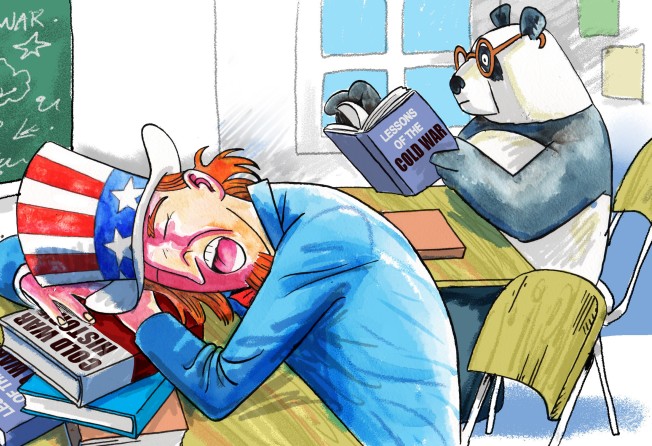Opinion | US’ failure to learn Cold War lessons will be to China’s benefit
- It’s not clear Washington has learned the deeper lessons of history, including why Beijing has avoided the Soviet Union’s fate
- Perhaps Chinese strategic thinkers foresaw this return to a Cold War decades ago, in broad outlines at least, and prepared accordingly

Many scholars date the Cold War from 1947, starting with the Truman Doctrine which aimed to contain the Soviet Union, to 1991, when the USSR collapsed. In those intervening years, the conflict touched billions of lives, with nearly every significant historical development connected in some way, directly or indirectly.
Today, it is worth reviewing American and Chinese assessments of the Cold War as these two countries find themselves on the brink of a new one. American narratives typically underscore three points.
Print option is available for subscribers only.
SUBSCRIBE NOW